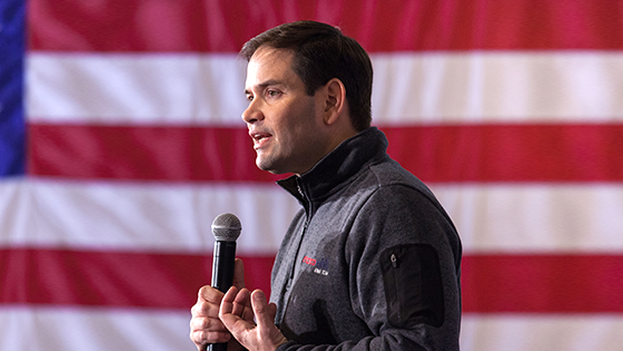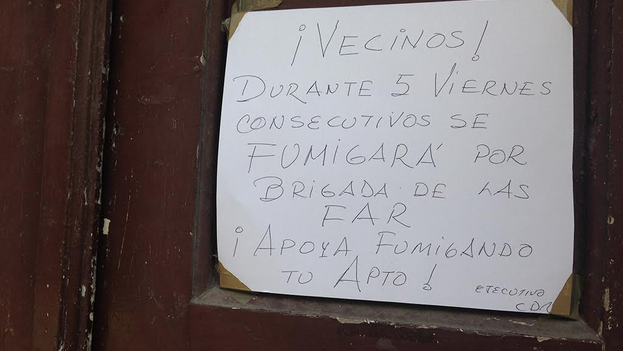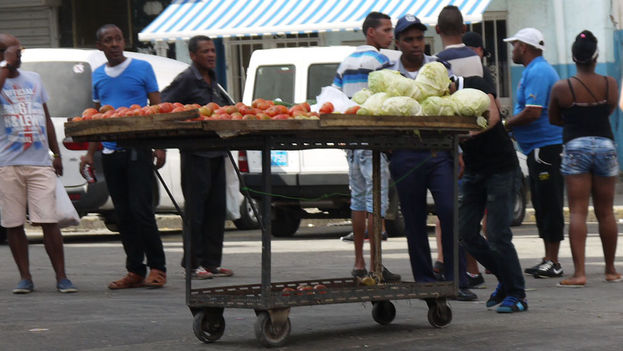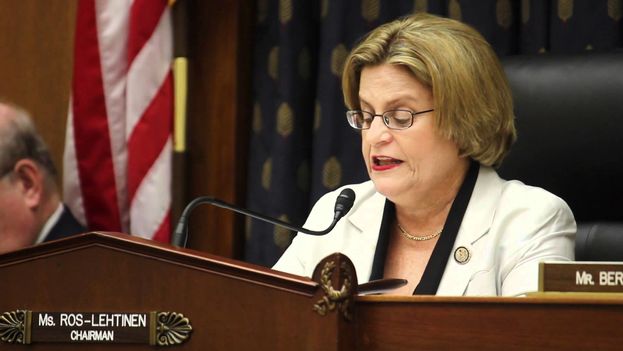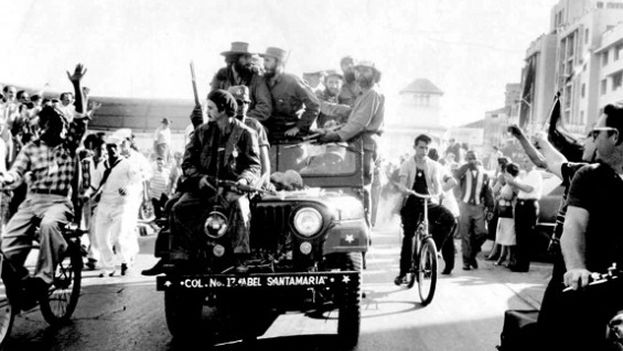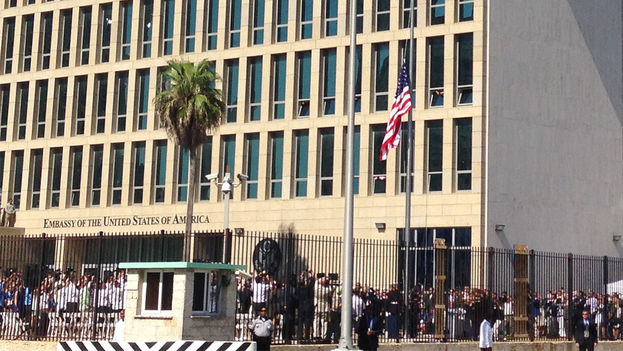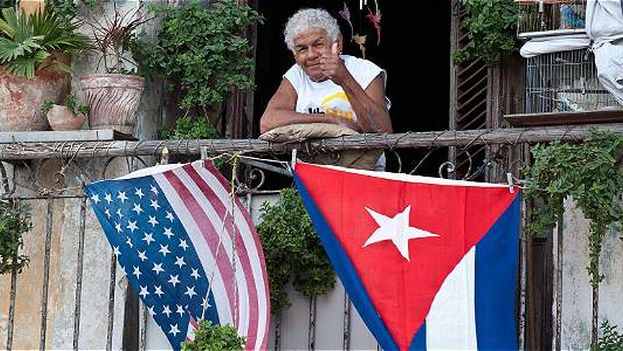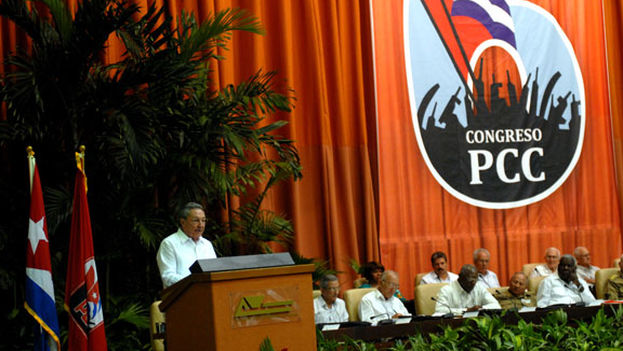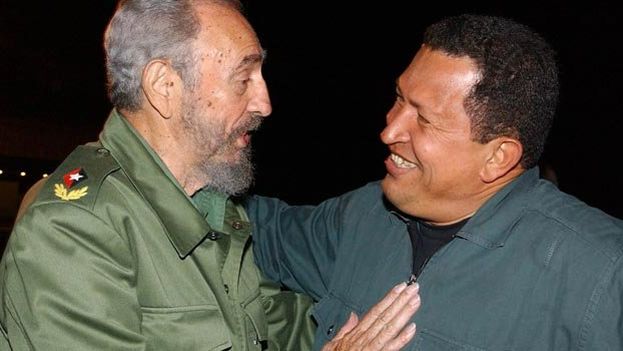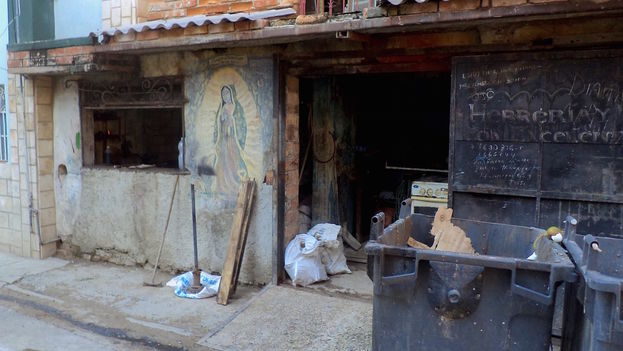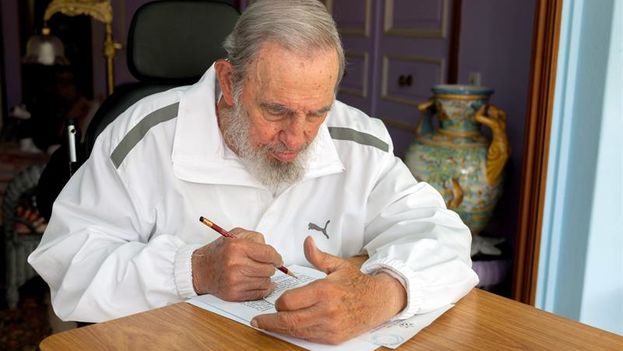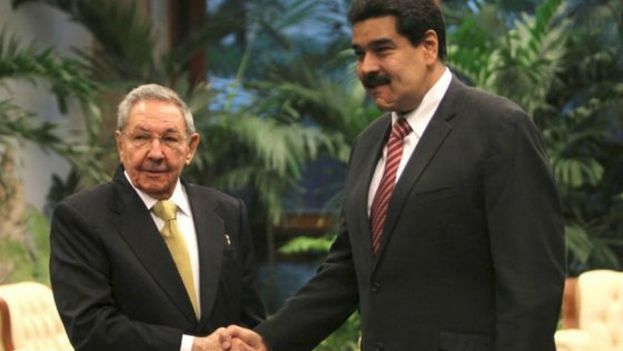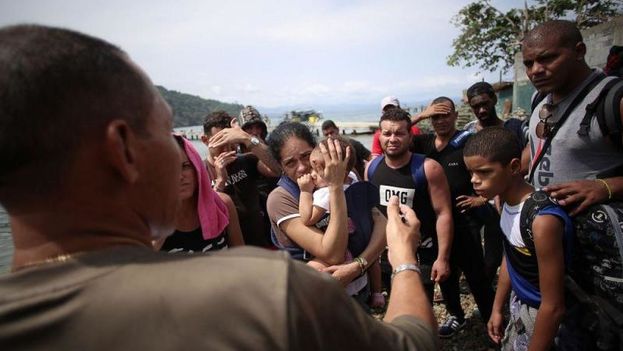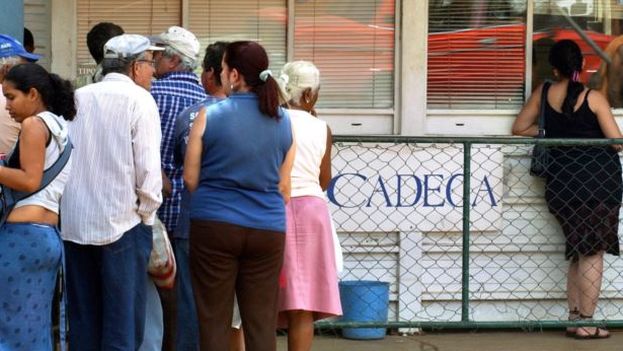
![]() 14ymedio, Pedro Campos, Havana, 19 March 2016 — Foreign Minister Bruno Rodriguez, commenting on the latest measures of the Obama Administration to loosen the strings of the blockade-embargo, announced Thursday at a press conference that the Cuban government had decided to eliminate the 10% tax on the dollar, established in 2004.
14ymedio, Pedro Campos, Havana, 19 March 2016 — Foreign Minister Bruno Rodriguez, commenting on the latest measures of the Obama Administration to loosen the strings of the blockade-embargo, announced Thursday at a press conference that the Cuban government had decided to eliminate the 10% tax on the dollar, established in 2004.
When it goes into effect, this measure will have an immediate positive effect on people’s pocketbooks and on the country in general. The dollar will be worth one Cuban Convertible Peso (CUC) and remittances sent by family and friends abroad will automatically increase their purchasing power by 10%. For every dollar that comes into the country in this way, the recipients will have 10 cents more to spend on food or whatever they need. continue reading
People with account in dollars automatically earn 10% relative to the CUC and the “little” Cuban peso (worth 4¢ US). Foreign investors will receive a 10% reduction in the costs of doing business in Cuba and, in general, the expenses of foreigners in the country will be reduced by 10%.
In addition, the prices of products sold in CUCs are effectively reduced by 10% and the cost of paying a Cuban work force is reduced by the same amount. A foreign concern that pays a Cuban worker 100 CUCs would normally face a cost to do so of 110 CUCs, but now will shell out only 100.
In the modern global economy, one of the measures taken by countries to stimulate their sales and investment is the devaluation of the national currency. This measure, in fact, is a devaluation of the national currency, the CUC, by 10% against the dollar, although it is being presented in a different light.
Several years ago, when the Cuban government implemented the tax of 10% on the value of the CUC against the dollar, it was a hard blow, not to the “empire” which continued to strengthen, but to the Cuban economy and the pockets of its citizens who receive remittances from abroad
This move will allow the dollar to be accepted by individuals in their businesses on par with the CUC and will avoid cumbersome exchanges, unless the Government specifically prohibits the circulation of the dollar in Cuba, which would be counterproductive. In fact, Cubans can carry dollars, operate and shop with them.
If such a prohibition does not appear, it is assumed that with increasing American tourism the free circulation of the dollar in the Cuban economy will also increase and this will create better conditions for establishing, in the near future, a single currency although in the short-term it is likely that we would have three basic currencies: the Cuban peso, the CUC and now the dollar on par with the CUC.
Silently, the Cuban economy would thus assume a process of dollarization that would connect us well to US market, favoring the economic development of the country in the short and medium term. “After the feast comes the reckoning,” as my grandmother would say.
This could ultimately be considered the government of Raul Castro’s most important economic measure, given the immediate impact it would have on ordinary people’s living standards and its effects as a stimulus to tourism, foreign investment and the purchase of Cuban products in the world market.
On 2 September 2007, taking as a starting point the ideas of democratic socialism, a paper titled “15 proposals for the revitalization of socialism in Cuba” was published, suggesting: “Restoring parity between the Cuban Convertible Peso against the dollar, with a minimum exchange tax to stimulate tourism, foreign investment (preferably indirect and in joint ventures), remittances and internal and external movement of the economy.”
It is never late to set things right.

